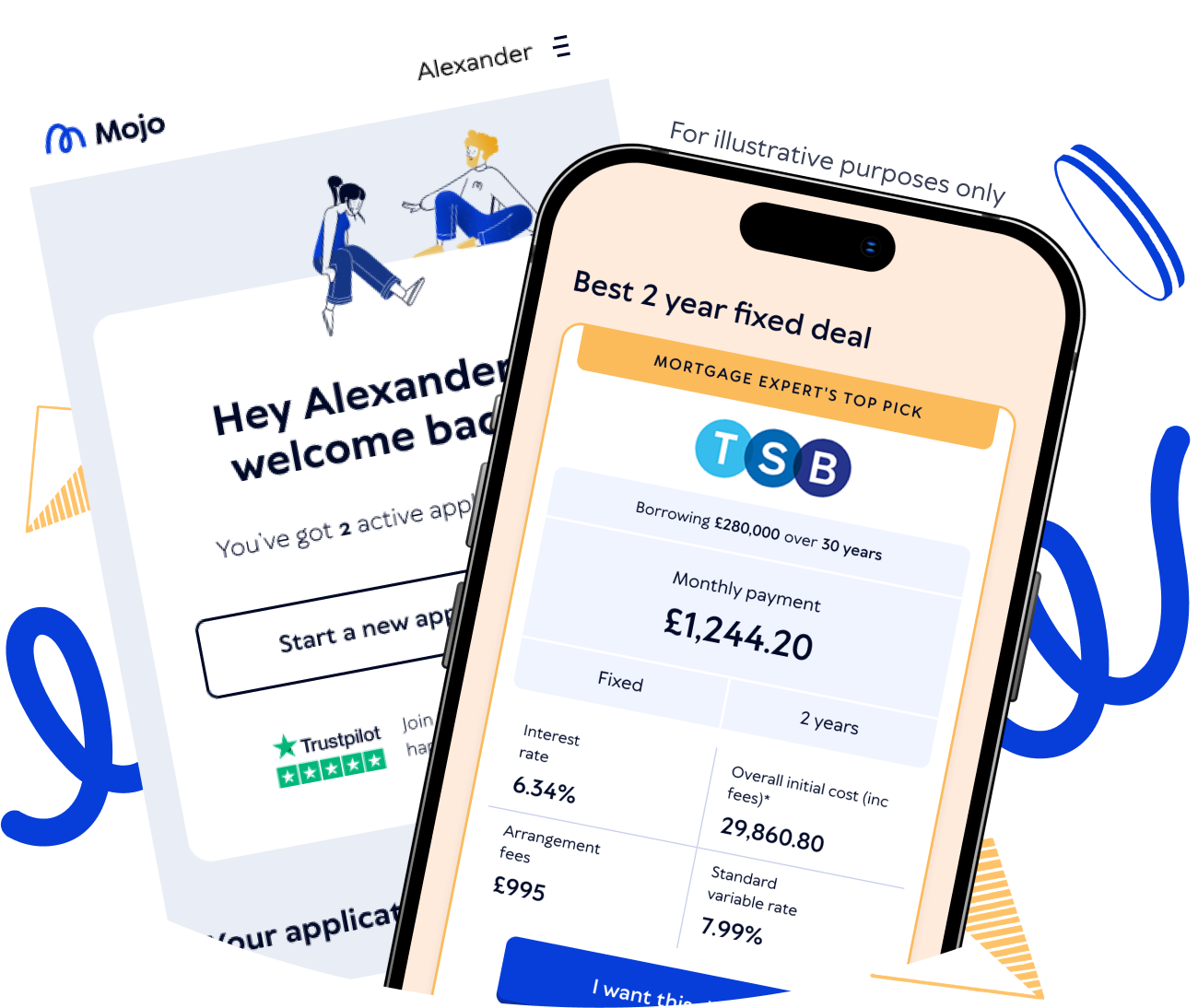What can I use as proof of deposit?
So, you’ve sourced your deposit and you’re ready to get your foot on the property ladder – now you need to prove to your lender where your deposit has come from. We explain exactly where your deposit can come from and how to provide the proof you need.


Quick summary
There are plenty of ways to get a deposit, from your own hard-earned savings to a generous gift from family
Lenders need to see evidence of where the money has come from to prove it’s all legal and above board. This helps to protect everyone involved from fraud
Not all lenders will accept all types of deposit funds, so it’s important to apply with a lender that’s a good match for your circumstances
A mortgage broker (that’s us!) can guide you through the whole process, making sure you submit the right documents at the right time
Why do lenders need proof of my mortgage deposit?
Brokers, lenders and solicitors all have a legal duty to make sure the money used for your deposit comes from a legitimate source (basically, that it isn’t the proceeds of crime). This is to ensure they comply with anti-money laundering regulations, and helps to keep the property market safe and fair for customers like you.
Seeing proof of your deposit also gives your lender confidence that you’re in a good financial position to move forward with your mortgage. Ultimately, your broker and your lender want to make sure you have the money ready for your down payment to avoid unnecessary delays and hassle.
When do I need to show my proof of deposit?
It’s a team effort when it comes to checking your deposit, and it happens at different stages of your home buying journey.
-
Your mortgage broker will ask about your deposit right at the start of the process. It helps us understand your situation so we can recommend the right mortgage and lender for you. At this stage, we’ll give you a heads-up on the exact documents you'll need to prepare.
-
Your lender will need to see the proof of deposit when you formally apply for your mortgage. They do this before making a final mortgage offer.
-
Your solicitor has a legal duty to check your source of funds as part of their anti-money laundering checks. This is separate from the lender's check and is an important step before they can transfer the money and complete the property purchase.

Check how much you need to save
Use our deposit calculator to find out how much deposit you need and how long it could take you to reach your goal.
Where can my mortgage deposit come from and how can I show proof of deposit?
Lenders accept deposits from lots of different sources. Every lender is slightly different but, if you need to provide additional documentation, we’ll let you know. As your broker we’ll make sure your lender has all the information they need to process your application smoothly and swiftly.
Have you been busy squirrelling away your cash to build up your deposit? Savings are one of the most common and straightforward sources of funds.
What you’ll need: Lenders will likely want to see around six months of bank statements for your current account and your savings account. This helps them see a history of you building up the money over time and confirms you have enough to cover the deposit.
Don’t worry too much if your bank statements don’t show consistent savings every single month. As long as the money is clearly coming from your regular income, and you can explain any larger one-off deposits (such as a work bonus), lenders are usually comfortable.
It’s becoming more and more common for family members - often parents or grandparents - to help out with a deposit. Lenders just need to be sure the money is a genuine gift, not a loan that needs to be repaid.
What you’ll need: You’ll need to provide a gifted deposit letter. This should confirm the amount, state that the money is a no-strings-attached gift and declare that the gift-giver has no rights over the property you’re going to buy. You may also need to provide proof of identification from your donor and proof of their source of funds to show the gift is legitimate.
Perhaps, instead of consistently saving, you’ve come into a windfall. You might have sold your car, jewellery or antiques, for example.
What you’ll need: You’ll need to show bank statements that evidence the money being deposited into your account, plus proof of where it has come from. It won’t be enough to simply explain you sold some valuables - you’ll need to be able to prove the transaction was legitimate.
You may be using profits from the sale of your existing property as part of the down payment for your new place, in which case you’ll need to evidence the sale.
What you’ll need: You’ll need to show a memorandum of sale or, if the sale is complete, you’ll provide the completion statement from your solicitor. If you had a mortgage on the property, you may also need to show your final mortgage statement.
Many homeowners are able to buy their first home or upsize thanks to an inheritance from a friend or relative.
What you’ll need: To prove these funds, you’ll likely need a letter from the executor or solicitor who handled the estate, and a copy of your bank statement showing the funds being transferred to your account.
If your deposit is coming from the sale of investments like shares or bonds, you’ll need to prove where the money came from.
What you’ll need: You'll need to provide a statement from your investment account showing the sale, plus a bank statement showing the money landing in your account.
Using cryptocurrency funds as your deposit can be more challenging, but it’s not impossible. You’ll need to provide a full paper trail showing the crypto being sold and the money being transferred into your UK bank account.
If you’re over 55, you might be using a tax-free lump sum from your pension to help buy a property.
What you’ll need: You’ll need to provide a copy of your pension statement showing the withdrawal and a bank statement showing the funds coming in from the relevant firm.
A lucky lottery win can provide you with enough money for a deposit - but you’ll need to provide adequate evidence, as some lenders can be cautious.
What you’ll need: You’ll need to provide the official receipt or confirmation of the windfall and a bank statement showing the money being paid in by the operator (such as The National Lottery).
Not all lenders will accept gambling wins - particularly if the win is in cash. You may also run into difficulty if your gambling win is a result of regular, large gambling transactions. This could show financial instability and a penchant for taking risks, which is often a big red flag on any mortgage application.
If you have been awarded compensation, such as from a personal injury claim, you may want to use some or all of that money to help you buy a house.
What you’ll need: You’ll need to show your compensation settlement and a bank statement showing the money being received from the relevant solicitor or third party.
What can’t I usually use for my mortgage deposit?
Borrowing money to help you borrow even more money is rarely accepted by lenders. Taking out a loan for your deposit means you’re essentially borrowing 100% of the property value and will hold no equity in the property at all to start with.
Most lenders want to feel confident you have strong financial habits, like the ability to save regularly.
Some lenders won’t allow a gifted deposit to come from a friend, employer, distant relative or family member who isn’t related by blood. That’s because it’s much harder to prove exactly why they would give you the money, particularly if they’ve never financially supported you before. Lenders need to be certain that it’s not just a disguised loan.
Large amounts of cash deposited into your bank account will likely be unacceptable, given how tricky it can be to prove where cash has come from. This can be a big concern when it comes to money laundering regulations.

Get expert advice
Feeling a bit overwhelmed by the paperwork? Don’t be. We’re here to help. Our expert mortgage brokers can look at your situation, tell you exactly what documents you’ll need, and match you with a lender who is most likely to accept your deposit type.
FAQs
It really does depend on your deposit type. For simple cases, such as a deposit coming from your savings, the check can take just a few days. However, for more complex cases, such as a gifted deposit that also requires checking the donor’s source of funds, it can take much longer.
Getting your paperwork in order as early as possible is the best way to avoid delays.
This is very unlikely. Even if it’s just for a small part of the deposit, most lenders will not accept any form of loan. They prefer to see that the deposit funds are your own, or a genuine gift.
Some lenders or conveyances will provide a handy form that details the exact information they need. Others, however, expect you to provide a letter that includes:
Your name and address, and the name of the address of the person providing the gifted deposit
The relationship between you and the gift-giver
How much they are offering as a gift
Where the money has come from
Confirmation that the money has been given as a gift, with no expectation that you will pay it back
Confirmation that they will have no legal interest or charge over the property
Their signature